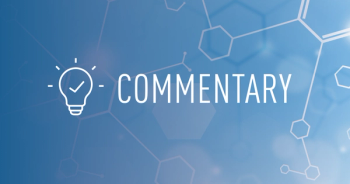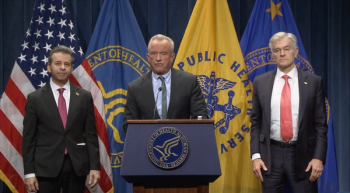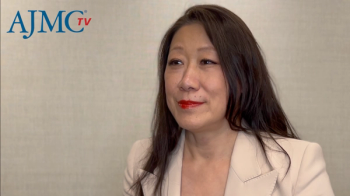
Field of Potential Adalimumab Biosimilar Contenders Continues to Grow
The list of potential adalimumab biosimilars has now lengthened to 10, according to a Cardinal Health summary of these products and their distinguishing features.
A
Cardinal Health estimates that Idacio, an adalimumab biosimilar under development by Fresenius Kabi, and CHS-1420, an adalimumab biosimilar under development by Coherus BioSciences, could launch in September and December 2023, respectively. Neither product has so far received FDA approval.
A third biosimilar version of adalimumab, AVT02, developed by Alvotech and with US licensing by Teva, has the potential to launch in 2023, although it has yet to obtain FDA approval, too.
Two other adalimumab biosimilars are in development, although Cardinal Health is making no bets as to whether they will surface on the market in 2023 or beyond. Those are CT-P17 by Celltrion and ABP-501 HC by Amgen.
“The US biosimilars market is in for a very exciting year in 2023, largely owing to the slate of potentially 10-plus biosimilar competitors anticipated to launch against the world’s top-selling drug of all time, Humira,” Cardinal Health wrote in an introduction to its adalimumab biosimilars data chart.
Adalimumab was originally approved in the United States in 2002 and has generated in excess of $170 billion in revenues. The drug is indicated for
Owing to a formidable portfolio of at least 136 patents, Humira has over the past 2 decades withstood attempts by biosimilar companies to come to market prior to 2023. In fact, settlements with AbbVie have been the primary means by which biosimilar companies have been able to penetrate legal barriers and schedule reliable market entry dates.
Below is the 2023 market entry timetable for the 6 FDA-approved adalimumab biosimilars:
- Amjevita (Amgen), January
- Hadlima (Organon), June
- Hulio (Viatris), July
- Cyltezo (Boehringer Ingelheim), July
- Hyrimoz (Sandoz/Novartis), September
- Abrilada (Pfizer), November
Even as the year of adalimumab biosimilar competition draws nearer, the picture of what that competition will look like is in constant flux, as the various competitors adjust their game plans according to court battles and product enhancements.
Rather than settle with AbbVie, Icelandic company Alvotech has opted to take the company to court over patent obstructions; and a court-issued timetable for arbitrating that dispute will not conclude before October 2022. It’s possible the biosimilar, AVT02, will
Product Differentiation
Biosimilar developers are now attempting to distinguish their adalimumab products by obtaining interchangeable status for them. This would enable pharmacists to dispense an adalimumab biosimilar for Humira without consulting the prescribing physician.
Alvotech has sought interchangeable status for AVT02, and Boehringer Ingelheim has so far obtained interchangeable status for
Three of the newer adalimumab biosimilar candidates will be high-concentration, citrate-free products: AVT02, CT-P17, and ABP-501 HC. Citrate is a buffer that controls pH, or stabilizes the drug, but it sometimes causes intense pain upon injection. The high-concentration, citrate-free formulation of Humira has enabled AbbVie to retain market share in Europe and could be a factor in the success or failure of biosimilar contenders in the United States.
Amgen’s Amjevita is a low-concentration, citrate-free formulation, and ABP-501 HC represents its bid for a share of the high-concentration market in the United States.
Cyltezo, Hulio, and Abrilada are also citrate-free products, and Hulio, Hadlima, and Abrilada are also latex free, according to Cardinal Health.
“Since first launching in the United States in 2003, Humira as a product has evolved in many ways, including new concentrations, citrate-free versions, latex-free delivery devices, and smaller needle gauges. Given the numerous product attributes that have arisen over the last 18 years, understanding what to anticipate from a product differentiation standpoint is a challenging task,” Cardinal Health wrote.
Newsletter
Stay ahead of policy, cost, and value—subscribe to AJMC for expert insights at the intersection of clinical care and health economics.









